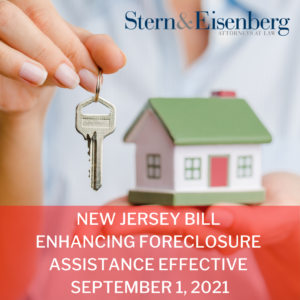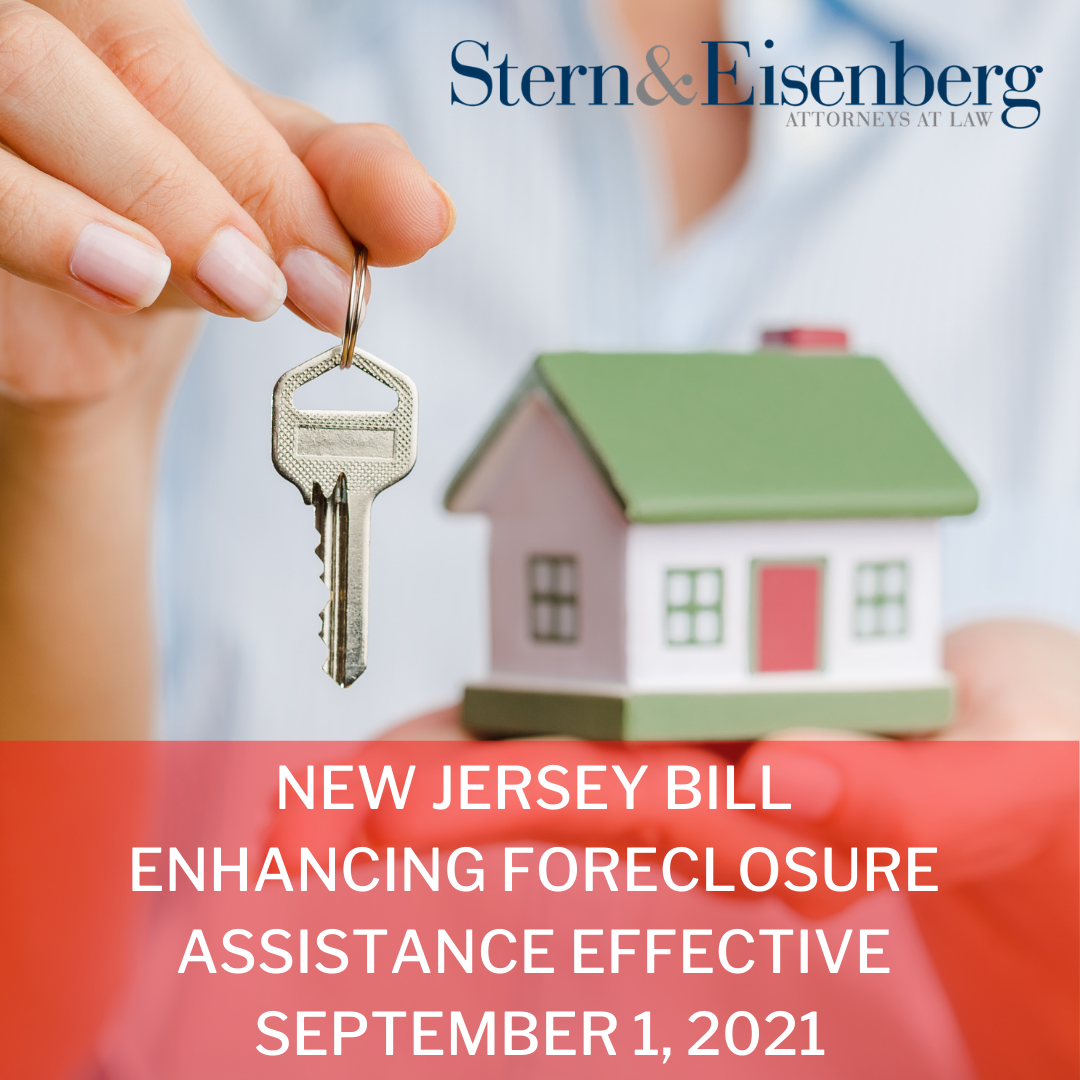By: David Lambropoulos, Esquire

On March 15, 2021, Governor Phil Murphy signed into law legislation which was sponsored by Senators Joe Cryan (D-Union) and Troy Singleton (D-Burlington). The legislation (S-2961 / A-1063), which becomes effective September 1, 2021, enhances the notification requirements for the state’s foreclosure mediation program. Specifically, the legislation requires homeowners facing foreclosure to be advised that there is no cost to participate in the mediation program and that their cooperation with a foreclosure default mitigation counselor is a pre-requisite to entry. This notice must be provided (in English and Spanish) at the time the notice of intent to foreclose is sent and again following the filing of a residential foreclosure complaint. The plain language of the prior and amended legislation excludes application to commercial loans.
One of the Bill’s primary sponsors, Senator Troy Singleton said “During this time, many were struggling with unemployment and could not pay their mortgage. We must give homeowners every tool possible to stay in their homes. By making sure homeowners are aware of free mediation services, we can help them avoid foreclosure. We have worked too hard to address the previous foreclosure crisis, and must do all we can to avoid it from happening again.”
The altruistic aim of the bill is clear and the new legislative mandate – which seeks to enhance homeowners’ knowledge of publicly available tools to assist them in times of crisis – is tailored to increase participation in the mediation program. Naturally, more robust participation in the program should facilitate a higher percentage of settlements and loan workouts, to the benefit of all parties involved.
Practically, the change supplements similar disclosures already required by existing law. Given the relative simplicity of the additional notice requirements, which expand upon those first enacted in November of 2019, one may well question why the effective date is not for another six months? Some believe that the effective date of this legislation offers the observer a window into the New Jersey government’s prediction as to when “regular” foreclosure activity will resume, while others believe a more significant lead time is simply a necessity to allow servicers to update their forms and procedures. Regardless of the macro timeline questions the effective date of the legislation is sure to spur for the servicing industry, few can argue with the bill’s intent. Ultimately, the legislation will be viewed as a success if it increases participation in the mediation program and facilitates increased settlement. While these remain welcome propositions for all parties involved, only time will tell if this legislation has delivered upon its noble goals.
